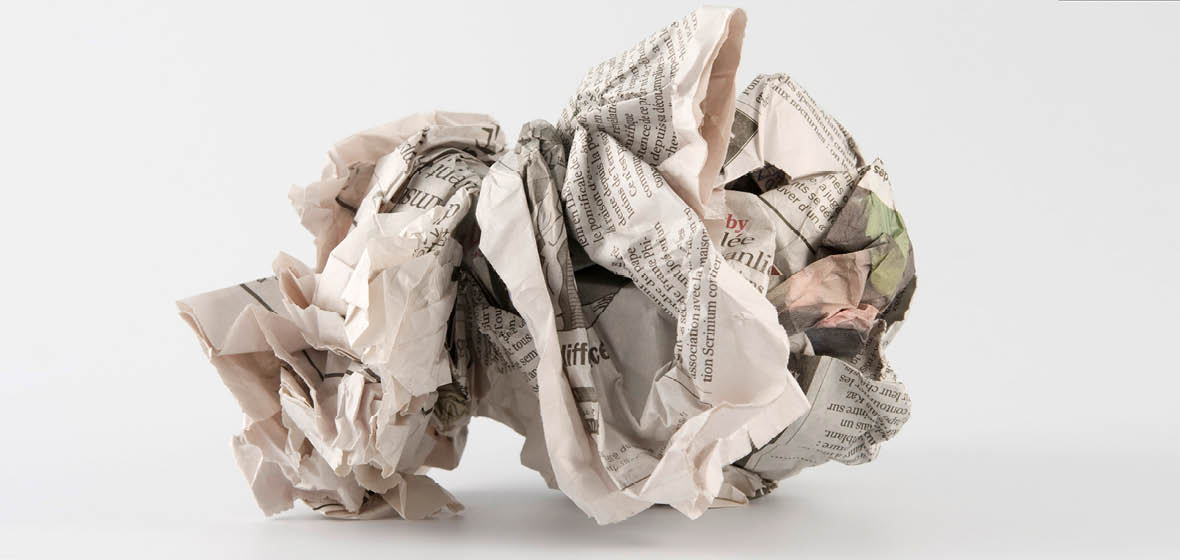The role of defamation law is to protect a person or organisation's reputation against harmful, injurious speech or writing. Applying this civil law in the field of journalism is a challenging one, and one that is increasingly a burden to editors, journalists and their subjects. Two years after the Defamation Act 2005 (NSW) was amended, the effect on investigation and publication in the media is concerning many in the journalism industry.
In defamation, the reverse burden of proof applies, meaning the defendant must prove that the allegations published are true, rather than the complainant proving that they are false.
Journalists have to balance their requirement to prove the veracity of their allegations while also balancing the right of their subjects to privacy and safety, especially where the subject is a whistleblower who may be in danger if their identity is revealed.
Journalism plays an essential role in sharing information that is in the public interest, and which the public has a right to know. This includes corruption, fraud, allegations of sexual abuse, political interference or news about prominent public figures and those in roles of authority and influence.
According to the Alliance for Journalists’ Freedom’s Future of Journalism Report 2022, Australia is the only member of the Five Eyes intelligence alliance (including Canada, New Zealand, the United Kingdom, and the United States) with no laws that positively enshrine the role of media in legislation. Public interest is not constitutionally recognised as a valid right and requirement of journalism. The report is also critical of the vulnerability of whistleblowers who are vital sources of information, and the increase in police and government interventions to stifle press freedom since 2018. The report warns that the current environment for journalism in Australia is undermining democracy and risking the quality and quantity of investigative journalism in the public interest.
LSJ spoke to journalist and Director of the Alliance for Journalists’ Freedom, Peter Greste, and media law expert, Professor David Rolph at the University of Sydney Law School, about the reforms to defamation laws in 2021 and how they have impacted journalism.
Little improvement in journalistic protections
In NSW, a successful defamation claim must establish the publication of defamatory matter about a person has caused, or is likely to cause, serious harm to the reputation of the person (section 10A Defamation Act 2005).
The NSW Defamation Act 2005, enacted in January 2006, had been designed for cases concerning traditional media, predating the rise of social media and the proliferation of online news sites.
The 2021 amendments to defamation laws in Australia were largely in response to a change in the media landscape, acknowledging the different ways that the public were receiving their news, and engaging with it. Arguably, they were well overdue. More than half of the defamation cases between 2013 and 2017 related to information published online according to The Centre for Media Transition.
The 2021 amendments introduced a public interest defence, which requires the defendant to prove that their written or spoken statement is both a matter of public interest and that the defendant reasonably believed that making the information public was in the public interest.
Additionally, rather than harm being assumed in defamation cases, plaintiffs are now required to prove that serious harm was cause by the allegedly defamatory material.
First test of the public interest defence
David Rolph is a Professor at the University of Sydney Law School, specialising in media law. He is a commentator and author, with books including Defamation Law (2015) and his most recent work, Contempt, released last month.
In a test of the newly introduced public interest defence laws, Rolph refers to the recent ruling in the defamation case brought by former special forces commando Heston Russell against the ABC and two investigative journalists – Mark Willacy and Josh Robertson – over stories published and broadcast in both 2020 and 2021. Both stories were removed on September 12, 2022. Russell was awarded $390,000 in damages (a total of $412,315.15 with interest) this month, with the ABC required to pay his court costs.
ABC managing director David Anderson acknowledged the loss in a senate estimates hearing on October 24, but insisted he would not be issuing an apology to Russell and that the ABC would not rule out an appeal within the 28-day window. The case cost the ABC over $800,000 in legal fees, Anderson admitted.
In a decision handed down on October 16, Federal Court Justice Michael Lee found the national broadcaster could not prove the articles were reported in the public interest and had caused the former soldier serious harm. Further, Justice Lee found that the public interest defence had not been established for numerous reasons, including that journalist Mark Willacy’s belief that the story was in the public interest was “not reasonable in the circumstances”.
The Defamation Amendment Act 2020 brought into force several changes to NSW’s Defamation Act 2005 on July 1, 2021 (as previously written about in detail in LSJ).
The s 29A; s 29A(1) states it is a defence to the publication of defamatory matter if the defendant proves that:
- ‘the matter concerns an issue of public interest, and
- the defendant reasonably believed that the publication of the matter was in the public interest.’
Rolph says, “The first decision to test the public interest defence was handed down by Justice Lee last week in the Heston Russell against the ABC case. Even though the public interest defence failed, Justice Lee made a number of interesting observations about the public interest defence and how it would operate in other cases. The judge suggested the Heston case wasn’t the best first vehicle to be the first test case. Throughout the trial, the ABC had indicated that they were considering withdrawing and not relying on the public interest defence, but they ultimately did. That was a signal that the public interest defence was in trouble.”
Despite the failure of the media to win in this case, Rolph believes the public interest defence “is a step in the right direction.”
He says, “The interpretation of the public interest defence in this particular case sends a clearer signal than we’ve had in the past. The problem we’ve had in the past is that other defences, like the statutory qualified privilege have been interpreted in a limited and restrictive way, therefore making it difficult for publishers to ever really establish a defence. The public interest defence in terms looks more beneficial to publishers. Now that we’ve had the first judgement, it seems that courts may well be more disposed to protecting public interest journalism.”
Rolph says Australian defamation law is aligning itself with where UK defamation laws are, rather than the US system.
“Both the UK and Australia have undergone substantial reforms to defamation laws. The UK reforms are almost a decade ahead of Australia, and we’ve borrowed features of their reforms. The UK has experienced a recalibration of the balance between freedom of expression and protection of reputation in favour of freedom of expression.”
Australia reigns as a defamation nation
Ultimately, what concerns Rolph is the volume of defamation litigation in Australia, an issue that the serious harm threshold seeks to reduce.
He says, “Australia has a relatively high incidence of defamation litigation compared to other parts of the world and that volume is something that is of concern. The serious harm threshold that has been introduced along with the most recent reforms in 2021 may exclude marginal or trivial claims at the outset and it might deter people from suing for defamation.”
The serious harm threshold changes the onus in defamation cases from the defendant to the plaintiff.
“Historically, you didn’t have to prove upfront that you’d experienced damage to your reputation in defamation cases. The serious harm threshold requires a plaintiff to prove that at the outset, that what’s been published has caused damage to their reputation or that it’s likely to cause damage to their reputation. Over the course of the defamation litigation, if the publication stops causing you damage then your cause of action may disappear and you won’t get damages. The serious harm threshold places the onus on the plaintiff to prove ongoing reputational harm, meaning that defamation courts should only be concerned with substantial defamation cases.”
Rolph says a number of cases in the District Court of NSW have been struck out owing to the plaintiff being unable to prove serious harm to their reputation, but they are also hearing appeals in these cases. “Still, it’s starting to have an effect,” he says.
Media freedom is a pillar of democracy
The not-for-profit company Alliance for Journalists’ Freedom (AJF) was formed in 2017 by lawyer Chris Flynn, strategic communications consultant Peter Wilkinson, and journalist Peter Greste. Its intention was, and is, to promote media freedom through working with Australian governments to ensure legislation supports the right of journalists to report freely and safely. Director of the AJF, Peter Greste, tells LSJ, “The public interest defence needs to be more robust, so that journalists have the capacity to report on information in the public interest without fear of being litigated against.”
He adds, “There is a framework of legislation that wasn’t directly aimed at silencing press freedom, at least not explicitly, but the suite of legislation that we’ve got around national security and defamation has that stifling effect. Newsrooms are incredibly risk averse to publishing anything that places either themselves or their sources at risk.”
Greste is concerned about the power dynamics in defamation laws involving journalists. He refers to the multi-million dollar defamation case brought by soldier Ben Roberts-Smith against Nine journalists in which Justice Anthony Besanko found The Age, The Sydney Morning Herald and The Canberra Times had proven Roberts-Smith was a war criminal who unlawfully killed and assaulted unarmed Afghan prisoners.
Greste says, “Defamation laws really privilege plaintiffs over journalists. While [The Age journalists] Chris Masters and Nick McKenzie won their case with Ben Roberts-Smith, that was a truth defence not a public interest test. We’ve got a serious problem, because whether it is through civil or criminal law, journalism is restricted.”
The financial impact of transitioning to digital news and the dissemination of news via social media has massively impacted the business model of traditional newsrooms, Greste explains.
“Newsrooms are struggling so much. They courageously took on stories in the past with the belief that they needed to publish, and they were prepared to go to court over those stories, but they can no longer afford the cost of litigation. Newsrooms are now chronically risk-averse, which has a serious effect on media freedom. We cannot dismiss the costs, complexity and risks of running a public interest defence in defamation law as having an impact on press freedom.”
Greste says, “We need to keep in mind that defamation laws privilege the rich and powerful. So, it is discriminatory in that sense, and it stifles the kind of reporting that challenges the rich and powerful. Defamation is used as a cudgel, used to silence reporting, rather that to seek redress.”
Greste is well-versed in the importance of media to a functioning democracy. He has over 30 years’ experience as a journalist, and he spent 400 days in an Egyptian jail owing to the Egyptian government’s allegations around the independence of al-Jazeera English, which Greste was reporting for at the time of his arrest.
“Freedom of the press is massively important, it’s a fundamental part of the way we make decisions in a democracy, live and work together, and hold our community together. There’s a false binary in arguing that national security and freedom of the press are contradictory. In trying to shore up national security, we are undermining and destabilising press freedom, which is a pillar of democracy and the very system we’re trying to protect.”




